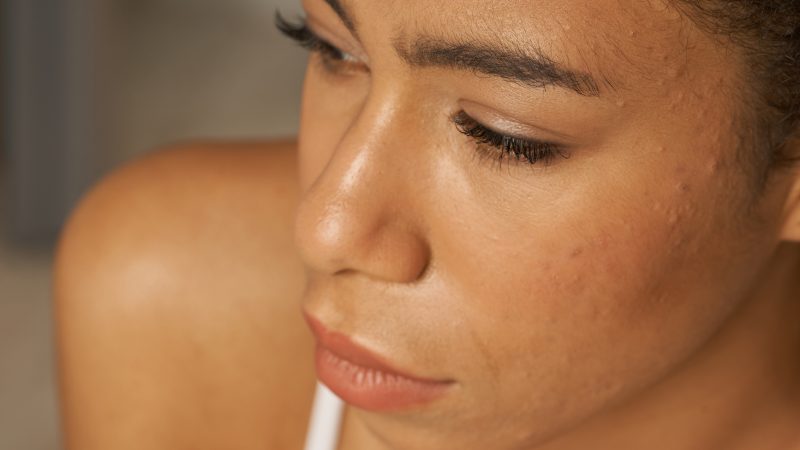Acne is a common skin concern that affects many people. While hormonal acne and bacterial acne both cause breakouts, they have different underlying causes and may require distinct treatment approaches. Let us explore bacterial acne and understand the treatment options, prevention tips and learn how to keep our skin looking healthy and blemish-free.
Treatment Tips for Bacterial Acne:
Customized facials: Estheticians can provide customized facials tailored to your specific skin concerns, including bacterial acne. These facials may include deep cleansing, exfoliation, extractions, and the application of specialized products to target acne-causing bacteria and reduce inflammation.
Chemical peels: Your Estheticians may recommend chemical peels to help treat bacterial acne. With Chemical peels, acid solutions are applied to the skin to remove dead skin cells and unclog pores. This help to reduce the occurrence of acne breakouts.
High-frequency treatments: Some estheticians offer high-frequency treatments, which use a gentle electrical current to kill acne-causing bacteria and reduce inflammation. This treatment can be particularly beneficial for those with bacterial acne.
Prevention Tips for Bacterial Acne:
As you already know, prevention is better than cure and while we can’t always prevent bacterial acne, there are measures that can be taken to reduce its occurence. Maintaining a consistent skincare routine will in most cases, do wonders, especially when you are working with your esthetician to develop a routine that is tailored to your skin type and concerns. Regular cleansing, exfoliation, and the use of targeted acne-fighting products can help prevent bacterial acne.
Seek regular professional treatments: Scheduling regular visits with your esthetician can help keep your skin in optimal condition and prevent bacterial acne. They can monitor your skin’s progress, make adjustments to your skincare routine, and recommend advanced treatments as needed.
Practice proper hygiene: Keep your hands, makeup brushes, and other personal items clean to reduce the transfer of bacteria to your skin. Estheticians often emphasize the importance of hygiene in preventing bacterial acne.
Be mindful of product ingredients: Estheticians can recommend non-comedogenic and acne-fighting skincare products to help prevent bacterial acne. Good Estheticians will always look out for ingredients that may be beneficial or harmful to your skin, thus helping you eliminate the guess work.
Lifestyle factors: Estheticians may also suggest lifestyle changes, such as maintaining a balanced diet, staying hydrated, and managing stress, to help promote overall skin health and prevent bacterial acne.
Bacterial acne can be a frustrating skin issue, but with the guidance of an esthetician, you can develop a personalized treatment and prevention plan. By following their expert advice and recommendations, you can work towards clearer, healthier skin.

